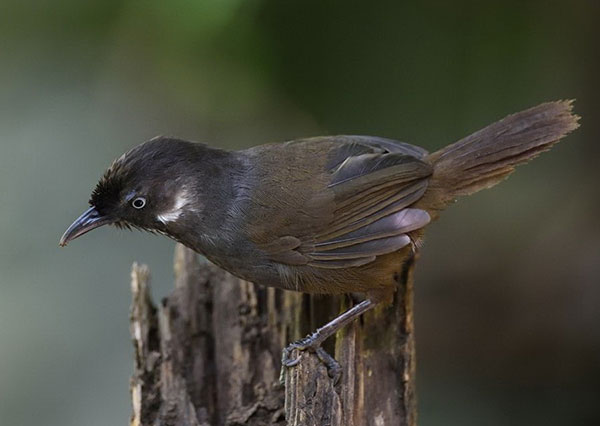Watchers from home, abroad flock to spot new bird species
 |
|
A Nonggang babbler, or Stachyris nonggangensis. |
NANNING - A nature reserve along the China-Vietnam border, where a new bird species was spotted about a decade ago, has attracted a growing number of bird-watchers and conservationists.
Longzhou county in South China's Guangxi Zhuang autonomous region hosted its first international bird-watching festival last week. More than 80 bird-watching enthusiasts from Beijing, Shanghai, Chongqing, Tianjin and Guangzhou, as well as Germany and Malaysia, participated in the festival.
In 2008, Chinese ornithologists Zhou Fang and Jiang Aiwu announced the discovery of a new bird species - the Nonggang babbler, or Stachyris nonggangensis, which was named after the region where it was discovered.
The fist-sized babbler is dark brown with white specks on its chest. There are about 1,300 Nonggang babblers at the reserve, Zhou said.
The Nonggang Nature Reserve stretches about 34 kilometers from west to east, with dense forests, karst caves and a plethora of bird species.
The growing popularity of bird-watching has benefited the area and helped local people realize the value of local birds, Zhou said.
Few people hunt the birds now and farmers have built ponds to store water for them, he said.
Lu Yun, a middle-aged member of a bird-watching club, traveled from Tianjin, a northern port city, down to Guangxi for the festival.
"With my camera, I have captured many birds that we never see in the north," Lu said.
With the help of a guide, he spotted several Nonggang babblers. "I was lucky to see the bird for myself," he said.
There are five villages near the reserve. Many villagers have profited from the growing popularity of bird-watching. Huang Zhiqiang, 33, was a sugar cane farmer before he became a guide for bird-watchers.
"The Nonggang babbler is the star bird, but tourists have a hard time spotting one unless they hire a local guide," Huang said.
"I know how to mimic the chirping sound of the bird and where they typically gather. They are easily frightened, so we have to be careful not to disturb them," he said.
"Villagers have realized that the birds are closely connected to their livelihood, and if they can protect them, tourism can blossom," said Liu Shengyuan, who works at the reserve, adding that there are about 20 spots to watch birds in and around the reserve.
Zhong Lei, head of the Longzhou county government, said: "With a growing number of people adopting bird-watching as a hobby, we think there is a good chance that the tourism industry will grow, but the most important thing is to protect the birds."



















